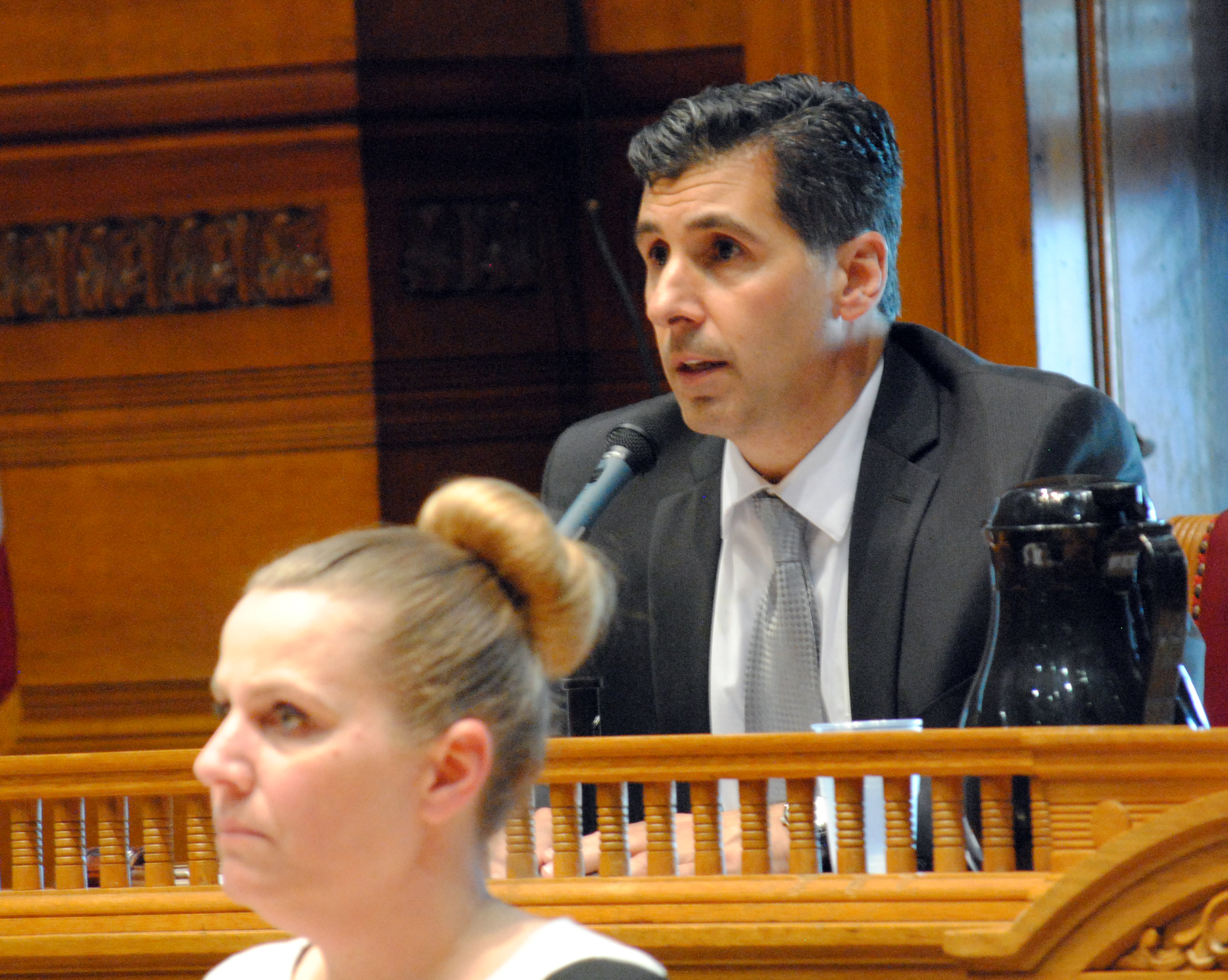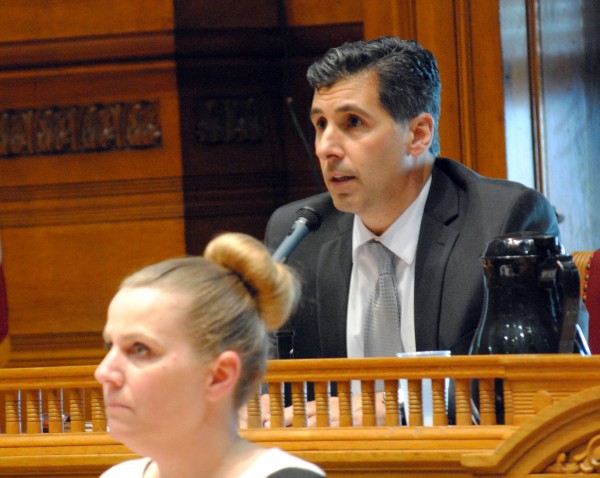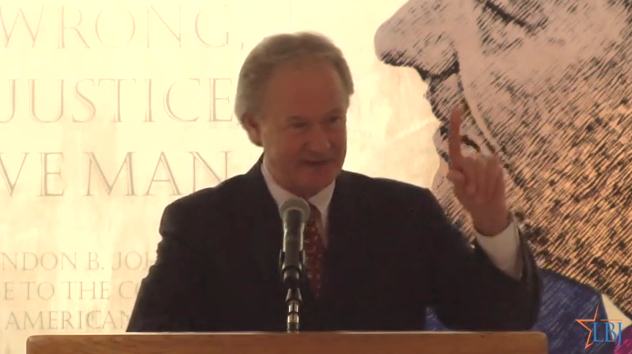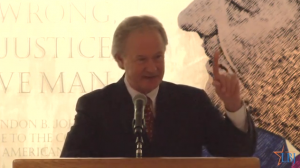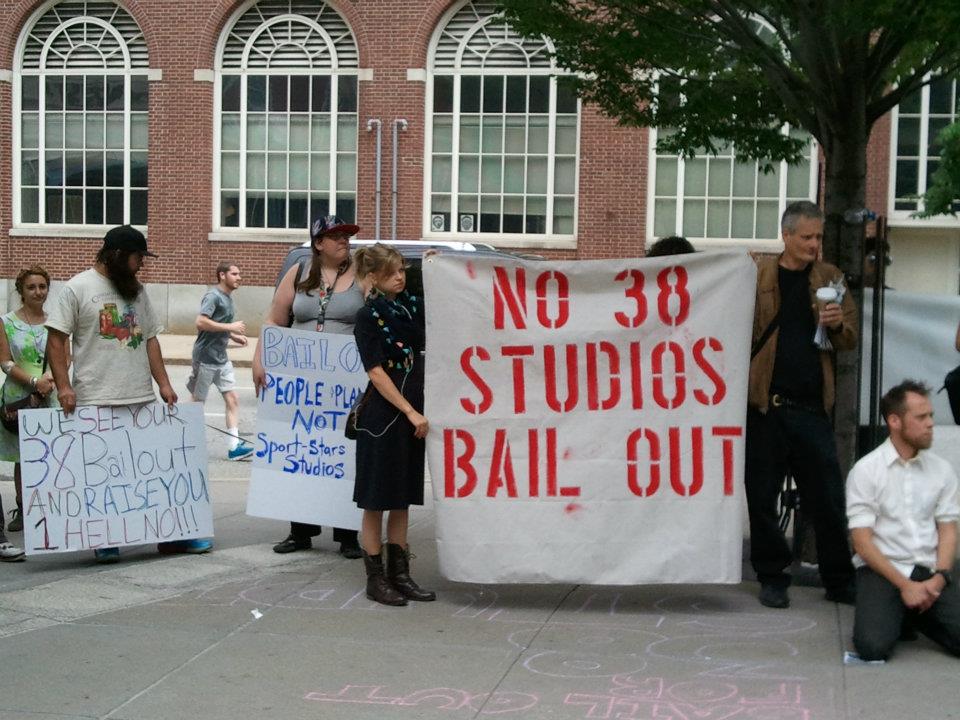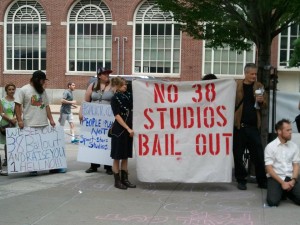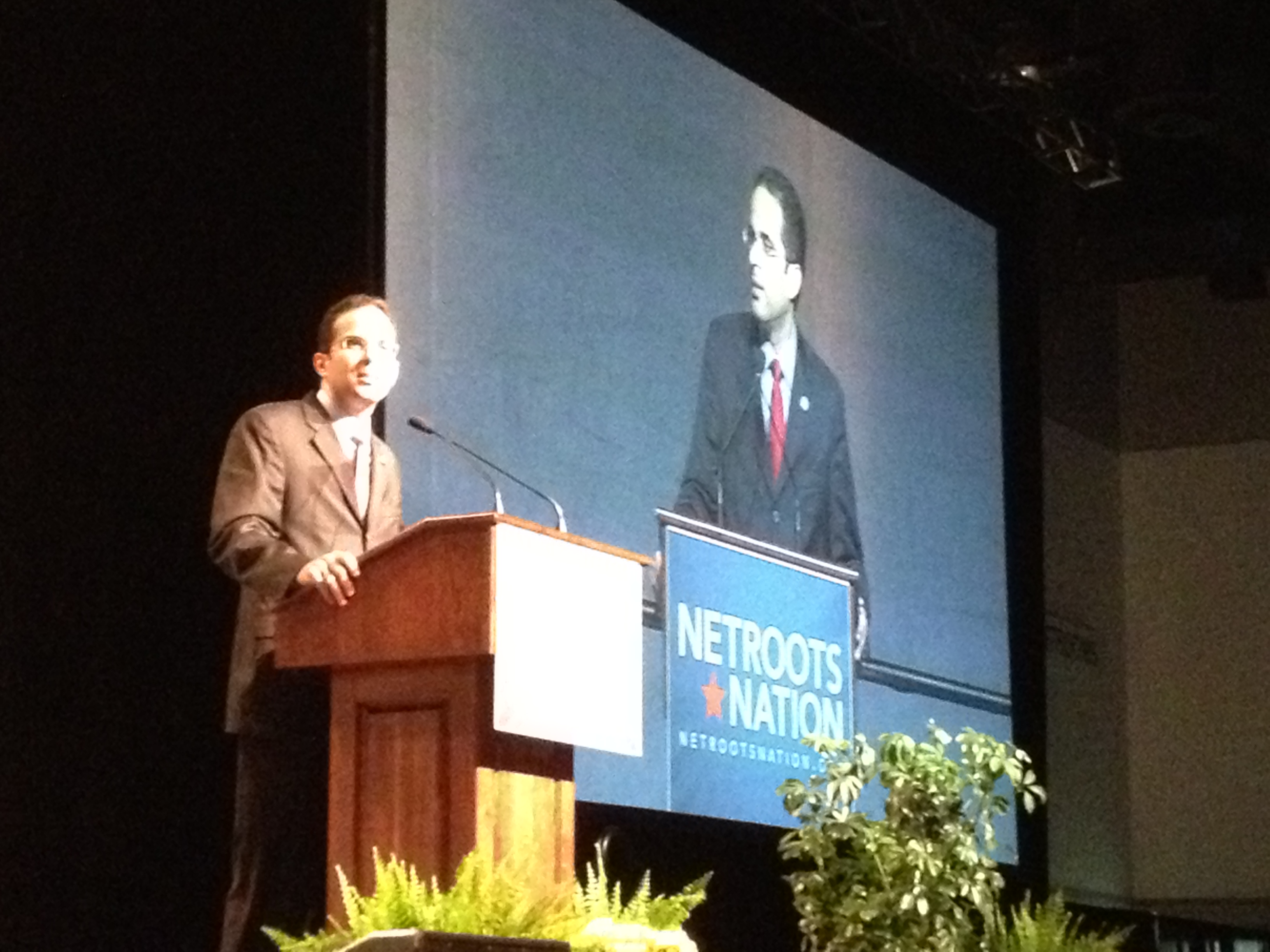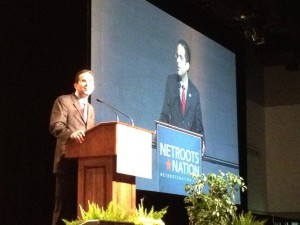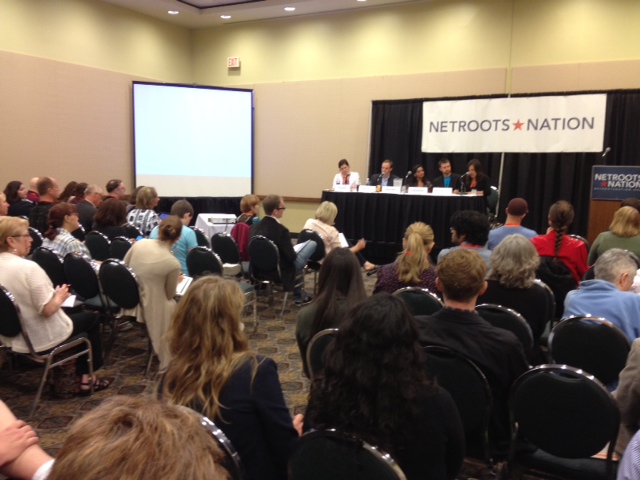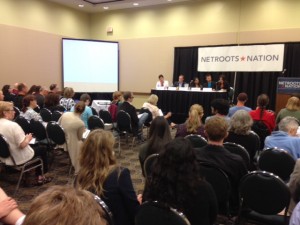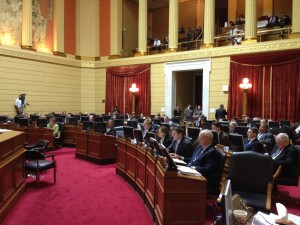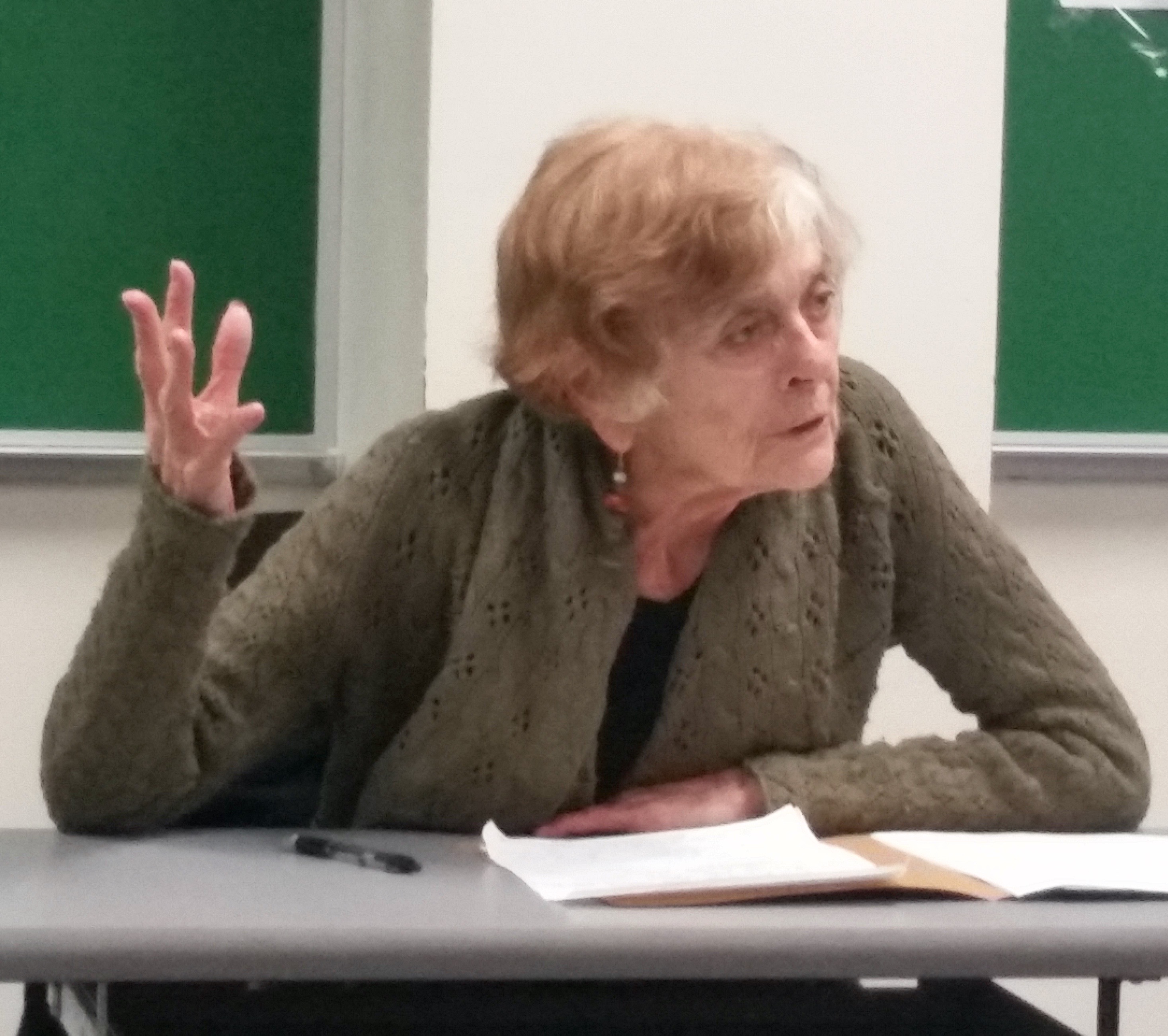
Frances Fox Piven is a legend. Her work was instrumental in the creation of the welfare rights movement and the war on poverty. Last night, Piven gave a talk entitled Strategic Voter Disenfranchisement: How Political Party Competition Shrinks the Electorate at the RI Center for Justice (in collaboration with the Swearer Center for Public Service at Brown.)
With Bernie Sanders and Hillary Clinton neck and neck in the polls, said Piven, starting her talk, “I thought, I’ll talk about voter disenfranchisement, but I want to talk about that in the context of this election… I actually think this is an important election.
“The strangeness of this election. It’s really kind of amazing… Things are happening that can’t be explained by the truisms that political scientists repeat to each other.”
For instance, asked Piven, who has served on the board of the Democratic Socialists of America, how can Bernie Sanders get away with calling himself a socialist? What has changed?
For Piven, the answer is that America today is a land of broken promises. “People rise up when the promises that have been made… have been broken. Life is very uncertain and insecure. You’re earning less money, your pension may be at risk. There is soaring inequality. Some people are getting so rich.”
The system is rigged and not in our favor. A very few are very rich and the rest of us are doomed to live lives in poorer and meaner circumstances than our parents. Yet there is a counter to this, said Piven, and that counter is electoral democracy.
“Many activists are skeptical of electoral democracy,” said Piven, yet, “political institutions nevertheless create a realm of equality. At least in principle, everyone has one vote. Those votes, when aggregated, can depose rulers. You can kick the sons of bitches out!”
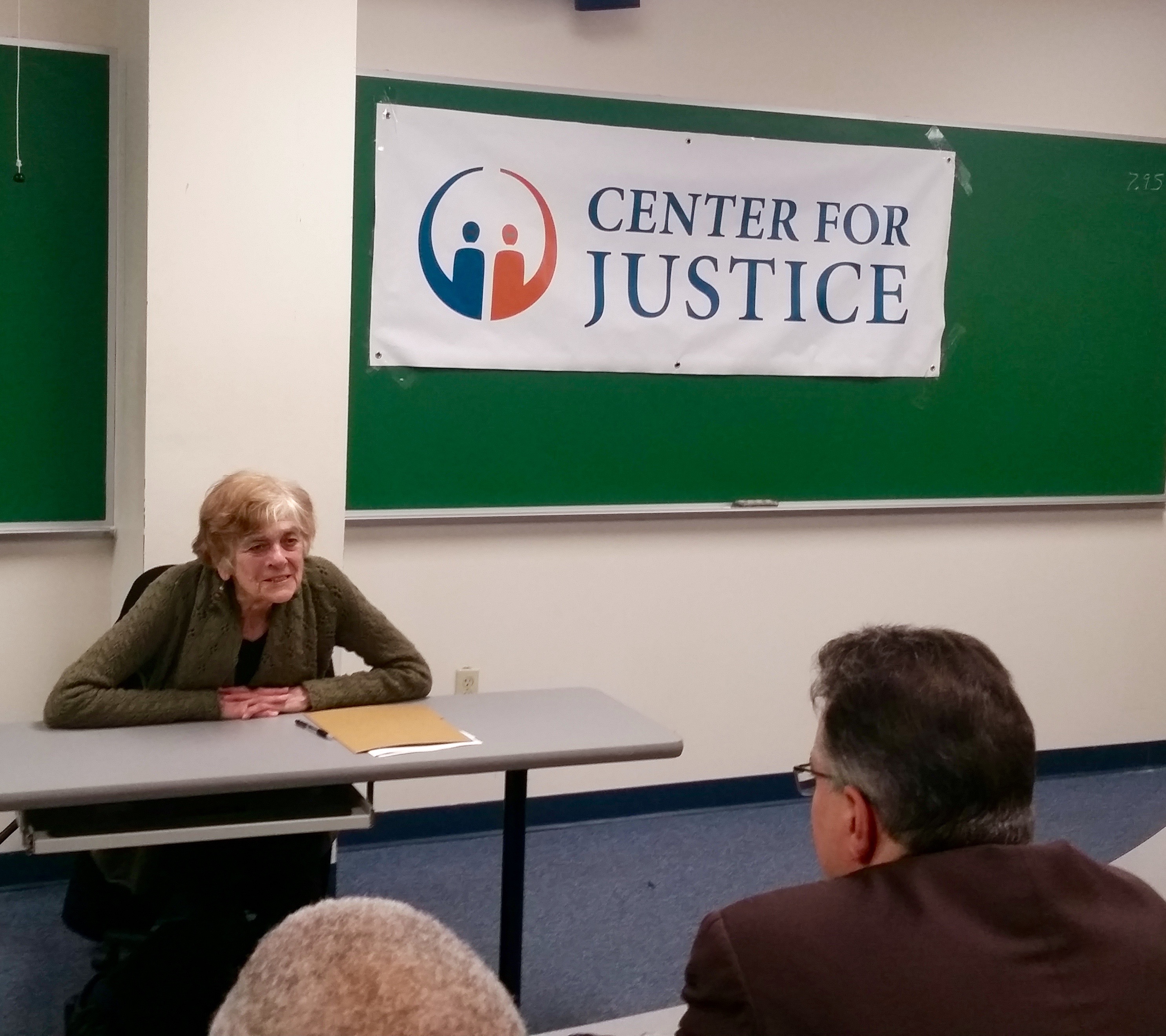 Since it is well known that “when electoral rights expand people do better,” said Piven, democracy becomes a threat to the status quo. Therefore, it behooves the rich and powerful to fight back. “The threat of democracy is met by manipulating electoral procedures.”
Since it is well known that “when electoral rights expand people do better,” said Piven, democracy becomes a threat to the status quo. Therefore, it behooves the rich and powerful to fight back. “The threat of democracy is met by manipulating electoral procedures.”
Some of the manipulations of electoral procedures were built into the country’s structure by the Founding Fathers, said Piven. The Senate, for instance, guarantees two Senators from every state, even if no one lives in the state. The Supreme Court is another example. The Court is only marginally influenced by voters, being nominated by the President to lifelong positions. “Walling off certain parts of the government and saying this part of the government is not exposed to the electorate” circumvents the power of democracy said Piven.
And of course the final way of challenging the power of electoral democracy is by “suppressing votes and voters.”
“In Political Science we have a ‘faith’ and one of the axioms is that competing parties expand voter engagement,” said Piven, but, “Competing parties exert themselves to make it hard for voters that may vote for their opponents. That’s just as logical, but you won’t find that in any textbooks, but it has happened in American history.
“At the turn of the 20th Century, immigrants became the constituency of the machine bosses. These machines traded voter allegiance and voter loyalty for favors. Businessmen had a problem with that arrangement because they wanted efficient services. [Political] machines are not good at providing the kinds of services that lead to business expansion. Municipal reform organizations were business organizations,” said Piven. The machines used voter registration, literacy tests, poll taxes and other methods of voter suppression to drive down immigrant voter turnout significantly.
And this is happening today, with voter suppression laws being enacted across the country.
“Every presidential election turns out to be the most expensive in history because of the concentration of wealth spilling over” into the political arena, said Piven. “There is no wall” between money and politics. “Inequalities outside the electoral arena spillover.” Today we conduct polls to see how voters are thinking but we also track political contributions. Dollars and votes seem to be equally important.
This money, and the voter suppression we are seeing in politics, is aimed squarely at the “new electorate.” This rising block of voters tend to be more progressive. Black voter turnout has increased, immigrant groups continue to expand, the youth vote jumped in 2008 and 2012 and there’s been a “shift in the women’s vote since 1980 and the Reagan elections,” said Piven.
Given the shift in voters, “Conservatives shouldn’t be able to get elected,” said Piven. But through the manipulation of voter eligibility, they do.
And it isn’t ending, said Piven. Right now there’s an effort underway to change the formula for representation from the number of members in the population to the number of active voters. This is a vicious circle, and it’s by design.
Taking away “our ability to influence government” is another broken promise.
“Broken Promises in the economy and politics probably accounts for the surge in movements over the last few years,” said Piven. “This was the beginning of a new movement era.”
She noted three in particular:
“First there was Occupy, the press mocked them at the beginning. Then everyone started using Occupy’s slogans and language. Then there was the Fight for $15. SEIU had a significant role in promoting $15 as the goal. They wanted to build the union. That didn’t happen. What happened instead was that a movement took off that has been affecting local politics,” and then of course there’s Black Lives Matter.
There are also movements on the right, but these are “not among low wage workers or immigrants. [These movements] are occurring among middle class people, a little older, above the median income. Donald Trump is speaking to those people and their imaginary past…” There are “strong currents of religious fundamentalism and macho culture, gun culture, imaginary pioneers… We’ve got to live with that.”
“Movements are not majorities,” said Piven, “movements are spearheads…
“Movements have played a key role in shaping the United States since the revolutionary period.” Piven mentioned three movements in particular that had gigantic political implications.
The abolitionists freed the slaves, FDR became a radical due to the rise of the labor movement, which brought social security, labor rights, welfare policy, and public housing policy, and the civil rights movement which finally did emancipate blacks, shattered Jim Crow in the South.
“The troubles caused by movements become troubles for politicians and governments,” said Piven, “Movements communicate issues politicians wanted to avoid – showing people they could become defiant and shut things down.”
Too often “activists dismiss elections but there’s an interplay,” said Piven, but, “movements nourish electoral politics. Sanders couldn’t have run without Occupy.”
“Movements made Sanders possible,” said Piven, wrapping up her talk, “I think Sanders could win the nomination. But I don’t know what will happen in a general election. It’s amazing. There’s no precedent…
“What really worries me is Sanders as President. He would be in the White House surrounded by politicians determined to block him at every move. Movements at that juncture will become very essential to a Sanders presidency because movements can shut things down. That is the kind of popular weapon that could be equal to the gridlock Sanders could be facing.”


